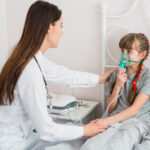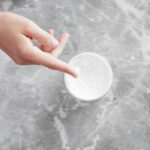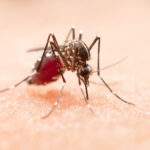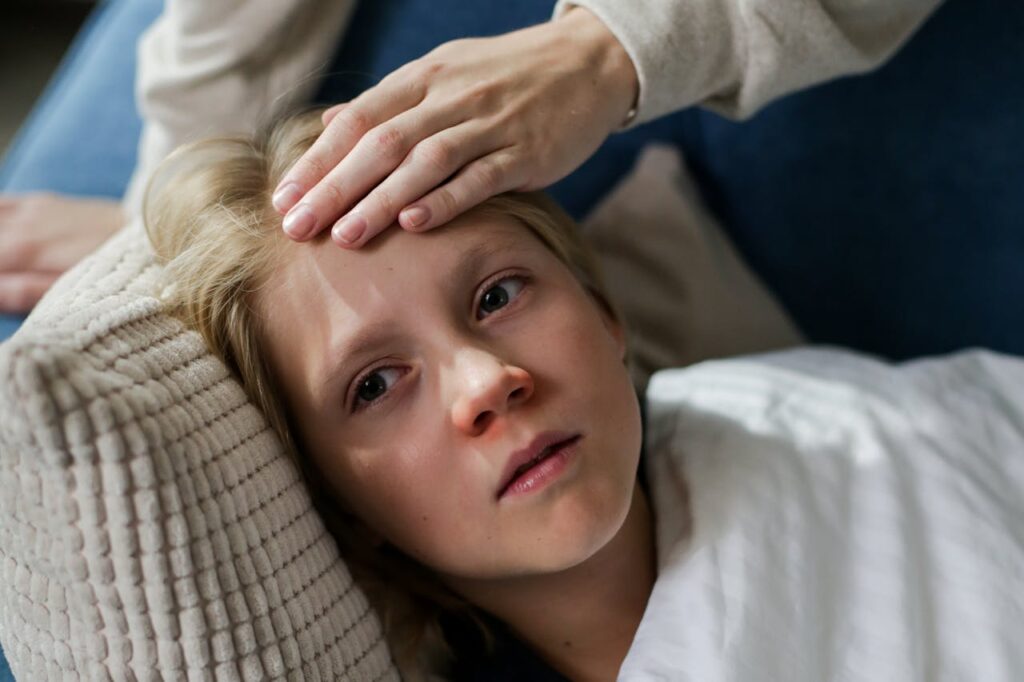
- What Is a Fever (High Temperature)?
- What Causes Fever (High Temperature)?
- When Is a Fever a Sign of Something Serious?
- What Are the Signs of a Fever?
- Treating a Fever: How Can I Help My Child Feel Better?
- Home Care Measures
- Staying Comfortable
- Food and Drinks
- When Should I Call the Doctor?
- Get Emergency Care If Your Child Shows Any of These Signs:
- What Else Should I Know?
- When should I worry about my child’s fever?
- Can I give my child ibuprofen?
- How should I dress my child with a fever?
- Is a fever dangerous?
- What fluids are best for a child with a fever?
All kids get a fever from time to time. Usually, a fever isn’t dangerous or harmful. In fact, it can be beneficial because it helps the immune system fight infection. Still, parents often feel unsure about how to handle a fever at home and when to call the doctor. Here are some tips.
What Is a Fever (High Temperature)?
A fever generally means a body temperature of 100.4°F (38°C) or higher. Different methods of measuring temperature—rectal, armpit, ear, forehead, mouth—yield slightly different numbers, so the threshold for fever varies slightly as well.
What Causes Fever (High Temperature)?
Fevers in kids are usually caused by infections. A fever helps the body by stimulating the immune system to combat the infection, and the higher temperature can make it harder for germs to grow. Other reasons for a fever include:
- Overdressing: Infants, especially newborns, may develop fevers if they’re overdressed, wrapped in blankets, or in a hot environment. Because newborns don’t regulate their body temperature well, any fever should be checked by a doctor.
- Immunizations: Sometimes, babies and kids develop a mild fever for about a day after getting vaccinated.
- Teething: A slight rise in body temperature may occur, but a temperature higher than 100°F (37.8°C) is probably not due to teething.
When Is a Fever a Sign of Something Serious?
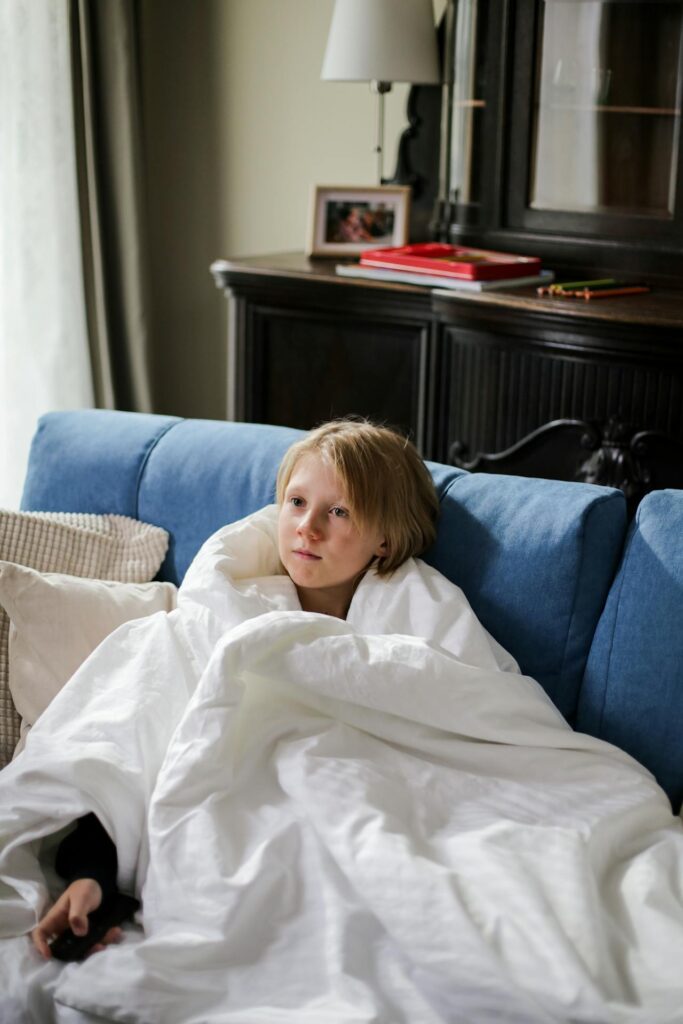
For most healthy kids who are acting normally, a fever isn’t serious. However, a fever can be serious for:
- Infants younger than 3 months: A rectal temperature of 100.4°F (38°C) or higher requires immediate medical attention.
- Kids with certain health conditions: If your child has an ongoing health issue, consult your doctor to know when to call for a fever.
A fever is probably not serious if your child is 3 months or older and:
- Is still interested in playing
- Is drinking well
- Is alert and smiling
- Has a normal skin color
- Looks well when the temperature goes down
What Are the Signs of a Fever?
Kids with a fever might:
- Feel warm
- Act differently (fussy, cranky, or quieter than usual)
- Breathe faster or have a faster heart rate
- Have a headache
- Experience chills or sweating
- Have red or flushed skin
To confirm a fever, use a digital thermometer. The best methods are:
- For kids 3 years old and younger: Rectal temperature
- For kids 4 or older who can cooperate: Oral temperature
- For any age: Armpit (axillary) and temporal artery (forehead) are easiest but less accurate. Tympanic (ear) is okay for kids 6 months and older.
A child has a fever when the temperature is at or above these levels:
- Rectal, tympanic, or temporal artery: 100.4°F (38°C)
- Oral: 100°F (37.8°C)
- Axillary: 99°F (37.2°C)
Treating a Fever: How Can I Help My Child Feel Better?
No treatment is needed if your child is playing and drinking normally and doesn’t have pain. Only use medicine if the fever causes discomfort or prevents drinking.
Home Care Measures
Medicines
If your child is uncomfortable or not drinking fluids well, you can give:
- Acetaminophen (Tylenol or store brand)
- Ibuprofen (Advil, Motrin, or store brand): Do not give to children under 6 months old.
Follow the package directions or consult your doctor for the correct dose. Do not give aspirin to a child due to the risk of Reye syndrome, a rare but serious illness. Do not give any fever medicine to infants younger than 3 months unless instructed by a doctor.
Staying Comfortable
- Dress your child in lightweight clothing and use a light sheet or blanket.
- Keep the room at a comfortable temperature.
- Ensure they get plenty of rest.
- They should stay home from school or childcare until their temperature has been normal for 24 hours.
Avoid lukewarm sponge baths, rubbing alcohol, ice packs, or cold baths as they can cause discomfort or chills.
Food and Drinks
- Offer plenty of fluids to avoid dehydration. Oral rehydration solutions (like Pedialyte) are a good choice, along with water, soup, ice pops, and flavored gelatin. Avoid caffeinated drinks.
- Let kids eat what they want but don’t force them if they’re not hungry.
When Should I Call the Doctor?
Call the doctor if your child:
- Is younger than 3 months with a rectal temperature of 100.4°F (38°C) or higher
- Is 3 months or older with a temperature higher than 102.2°F (39°C)
- Has a health problem like cancer or sickle cell disease and has a fever
Also call if a child 3 months or older has a fever and:
- Refuses fluids or seems too ill to drink enough
- Has lasting diarrhea or repeated vomiting
- Shows signs of dehydration (less urination, no tears, less alert and active)
- Has a specific complaint (sore throat or earache)
- Still has a fever after 2–3 days
- Has a rash or pain while urinating
Get Emergency Care If Your Child Shows Any of These Signs:
- Continuous crying
- Extreme irritability or fussiness
- Sluggishness and difficulty waking up
- Rash or purple spots resembling bruises
- Blue lips, tongue, or nails
- Bulging or sunken soft spot on an infant’s head
- Stiff neck
- Severe headache
- Limpness or refusal to move
- Trouble breathing that doesn’t improve with a clear nose
- Leaning forward and drooling
- Seizure
- Moderate to severe belly pain
What Else Should I Know?
Fevers are common in kids and usually resolve within a few days. For older babies and kids, behavior is often more telling than the thermometer reading. Crankiness is normal with fever. If you’re ever unsure about a fever or your child’s condition, always call your doctor for advice
FAQS
When should I worry about my child’s fever?
For infants under 3 months, any fever over 100.4°F (38°C) warrants immediate medical attention. For older kids, monitor if the fever exceeds 102.2°F (39°C) or persists.
Can I give my child ibuprofen?
Yes, for children over 6 months old. Follow dosage instructions carefully.
How should I dress my child with a fever?
Dress them in lightweight clothing and use a light sheet or blanket.
Is a fever dangerous?
Most fevers are not dangerous and help fight infections. However, watch for severe symptoms.
What fluids are best for a child with a fever?
Oral rehydration solutions, water, soup, ice pops, and flavored gelatin. Avoid caffeinated drinks.




